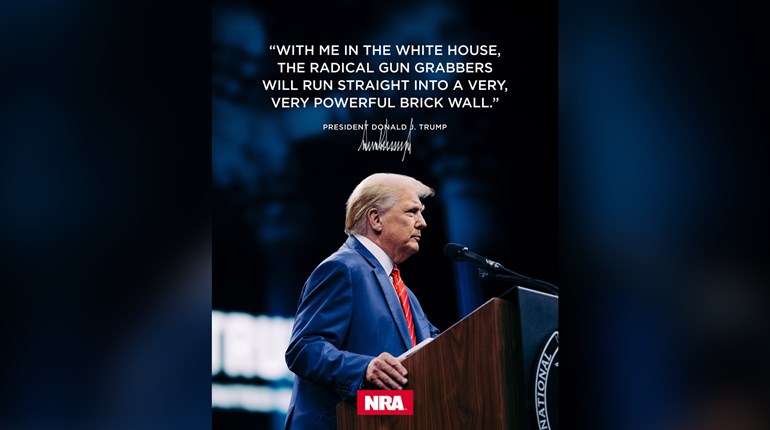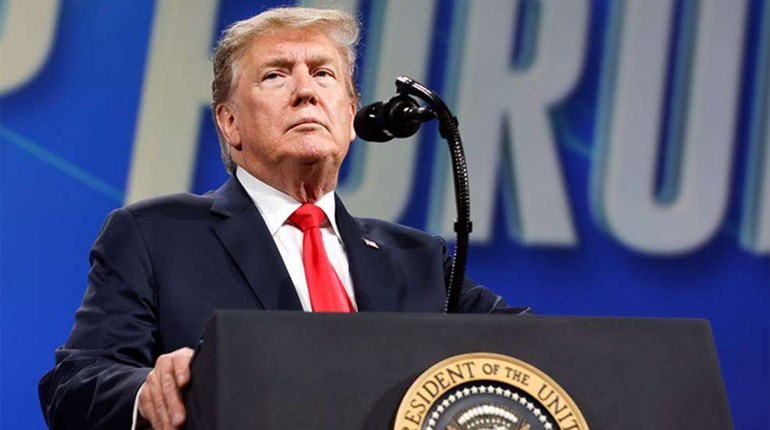
Joe Biden wants your guns. For now, however, a pro-gun House of Representatives stands in the way of the legislation it will take to get them. But if Joe Biden can’t pass new laws to ban the guns Americans already own, he will use his army of bureaucrats to reinterpret existing laws to make new guns as expensive and difficult to get as possible. His latest move, which concerns firearms exports, attempts to further impoverish the businesses that make a meaningful Second Amendment possible.
The U.S. small arms industry should be a source of national pride. While much manufacturing has moved offshore, gun-making is a mainstay of America’s capacity to produce the best, most desirable products in the world. But the firearms business is a labor of love that is subject to a wide range of economic challenges. To survive, many companies have a diversified business strategy that incorporates the private market, government contracts and lawful exports to foreign buyers.
Realizing the gun industry’s vulnerability, the Biden administration has attacked it through a variety of means. These include “zero tolerance” oversight of federal firearm licensees (FFLs), supporting lawfare on FFLs for the criminal misuse of lawfully sold guns, suppressing FFLs’ access to financial services, and reversing longstanding positions on the legality of braced pistols and 80% receivers.
The administration’s latest gambit is cracking down on lawful firearms exports. I wrote about this effort a few months ago, when it was still in its infancy (see “First Amendment Rights Apply To All,” in the April 2024 issue). At the time, firearms exports had been subject to an unprecedented “pause,” supposedly to evaluate the adequacy of existing controls.
That “evaluation” has now been completed, with the preordained conclusion that a wide-ranging export crackdown is necessary to “protect U.S. national security and foreign policy interests,” which include “countering the diversion and misuse of firearms and related items and advancing human rights.”
The crackdown comes in the form of a rulemaking by the Bureau of Industry and Security, which administers exports of non-military firearms for the U.S. Commerce Department. These are the sorts of guns that are lawfully present in millions of American homes. They are also, by definition, legal in the places to which they would be exported, although usually under much stricter laws than here in the U.S.
The point of the new rules is to make it more difficult and expensive for U.S. companies to sell guns overseas for use by non-governmental end users. Or, to put it more bluntly, the rules are meant to inflict further pain on the U.S. gun industry by making it less competitive in global markets.
The rule will create new, stricter export categories for semi-automatic firearms, not coincidentally the same guns Biden seeks to ban as “assault weapons” here in the U.S. It will also establish dozens of “high-risk” countries that would be subject to a “presumption of denial” for export licenses pertaining to private customers. Where there used to be presumptions of approval for lawful exports to stable nations, there will now be strict case-by-case evaluations, with additional reasons added to the existing bases for denial. Licenses that used to be valid for four years will now only be valid for one year, substantially increasing transaction costs. And licenses that had already been approved to the newly created “high-risk” countries will be canceled, with the affected companies forced to start the process over again under the stricter new standards.
The measure was passed as an “interim final rule,” an expedited process that dispenses with various formalities of the normal rulemaking process, including the usual requirement of soliciting public comment before the terms of the final rule are published. By the time you are reading this, it will have taken effect. The agency will accept public comments on the rule until July 1 through regulations.gov, although it is apparent they will be treated as an afterthought.
The National Shooting Sports Foundation, the trade association for the firearm industry, estimates the “total economic impact of the Interim Final Rule easily exceeds $250 million to U.S. manufacturers and exporters.” This is a devastating blow to businesses already staggered by Biden’s campaign of political persecution.
Yet, even as the rule hobbles U.S. businesses, it creates additional opportunities for unscrupulous foreign competitors, including China and Russia, two of the biggest arms exporters in the world.
That is a heavy and dangerous price to pay for yet another attack on the U.S. firearm industry by the most anti-gun president in American history.


































